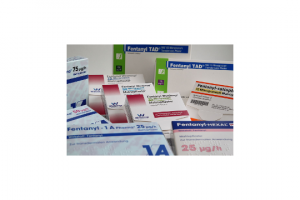Americans across the political spectrum may be more in tune with each other than they realize. Even though measures taken to handle the spread of the Coronavirus have been politicized, a recent survey conducted by the Harris Poll for the American Psychological Association shows that there is consensus among Republicans and Democrats about prevention measures to mitigate the spread of Covid-19.
Mask wearing and social distancing were important precautions to a majority of both Republicans and Democrats. Both also found it stressful to be in the proximity of people who did not follow these protocols. No matter party affiliation, people said they were experiencing stress from a high level of national uncertainty.
Executive Director, D. Arthur C. Evans, Jr., issued a response to the survey:
“As our nation continues to grapple with so much adversity, it is reassuring to see that we stand united on important issues that will help our nation heal. … The Coronavirus doesn’t recognize political boundaries so our country will be best served if we come together in a bipartisan effort in this historic fight to overcome the pandemic — a common enemy.”
With the pandemic, more Americans are reporting a rise in specific negative feelings such as frustration, fear, and anger.
Another stressor addressed in the survey was people’s response to racial injustice and civil unrest. “Sixty percent of Americans say police violence towards minorities is a significant source of stress. … Moreover, nearly … 64 percent of Americans report the government response to the protests following the death of George Floyd as a significant source of stress.”
The hopeful note here is that 63 percent of adults concur that “the current movement against systemic racism and police brutality is going to lead to meaningful change in America.”
To keep hope alive, we all need to take care of our own mental health as well as the mental health of the loved ones in our care. Be mindful of signs of anxiety and depression in ourselves and those close to us. Remember, too, that children are emotional barometers. If parents or caregivers are overwhelmed and stressed, children will be reflecting that in their own emotions and behaviors.
Alcoholics Anonymous uses the acronym HALT — hungry, angry, lonely, tired — to heed the signs of getting overwhelmed or “falling apart.” I add two S’s — sick and stressed. Remember “SHALTS” to help stop and re-center, re-collect yourself when you have that feeling of falling apart!
Further Reading:
- https://www.apa.org/topics/covid-19
- https://nami.org/Support-Education/NAMI-HelpLine/COVID-19-Information-and-Resources
- https://www.samhsa.gov/coronavirus
About Kayta Gajdos
Dr. Kathleen Curzie Gajdos ("Kayta") is a licensed psychologist (Pennsylvania and Delaware) who has worked with individuals, couples, and families with a spectrum of problems. She has experience and training in the fields of alcohol and drug addictions, hypnosis, family therapy, Jungian theory, Gestalt therapy, EMDR, and bereavement. Dr. Gajdos developed a private practice in the Pittsburgh area, and was affiliated with the Family Therapy Institute of Western Psychiatric Institute and Clinic, having written numerous articles for the Family Therapy Newsletter there. She has published in the American Psychological Association Bulletin, the Family Psychologist, and in the Swedenborgian publications, Chrysalis and The Messenger. Dr. Gajdos has taught at the college level, most recently for West Chester University and Wilmington College, and has served as field faculty for Vermont College of Norwich University the Union Institute's Center for Distance Learning, Cincinnati, Ohio. She has also served as consulting psychologist to the Irene Stacy Community MH/MR Center in Western Pennsylvania where she supervised psychologists in training. Currently active in disaster relief, Dr. Gajdos serves with the American Red Cross and participated in Hurricane Katrina relief efforts as a member of teams from the Department of Health and Human Services' Substance Abuse and Mental Health Services Administration.Now living in Chadds Ford, in the Brandywine Valley of eastern Pennsylvania, Dr. Gajdos combines her private practice working with individuals, couples and families, with leading workshops on such topics as grief and healing, the impact of multigenerational grief and trauma shame, the shadow and self, Women Who Run with the Wolves, motherless daughters, and mediation and relaxation. Each year at Temenos Retreat Center in West Chester, PA she leads a griefs of birthing ritual for those who have suffered losses of procreation (abortions, miscarriages, infertility, etc.); she also holds yearly A Day of Re-Collection at Temenos.Dr. Gajdos holds Master's degrees in both philosophy and clinical psychology and received her Ph.D. in counseling at the University of Pittsburgh. Among her professional affiliations, she includes having been a founding member and board member of the C.G. Jung Educational Center of Pittsburgh, as well as being listed in Who's Who of American Women. Currently, she is a member of the American Psychological Association, The Pennsylvania Psychological Association, the Delaware Psychological Association, the American Family Therapy Academy, The Association for Death Education and Counseling, and the Delaware County Mental Health and Mental Retardation Board. Woven into her professional career are Dr. Gajdos' pursuits of dancing, singing, and writing poetry.
- Web |
- More Posts(250)

 (4 votes, average: 4.00 out of 5)
(4 votes, average: 4.00 out of 5)

Comments